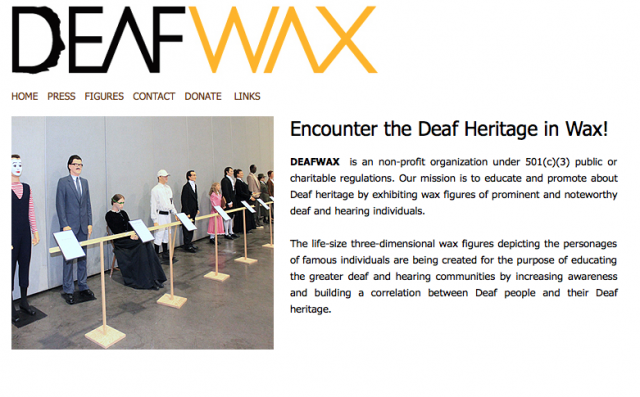Originally appeared in Silent News, June 2001.
Yet another retailer is facing a lawsuit claiming discrimination. This time it’s Wal-Mart facing the United States Equal Employment Opportunity Commission (EEOC) in the case of Ruthie Gilmore, a deaf woman from Circleville, Ohio.
John Sargent, supervisory trial attorney for EEOC, said, “Ruthie Gilmore filed a charge with the EEOC in 1996 complaining that she was denied an accommodation in the form of a qualified interpreter for meetings at work after she was hired in that year.”
The EEOC investigated the complaint, and found that indeed discrimination existed. “The EEOC and Wal-Mart attempted to conciliate the charge and that was unsuccessful. The file was referred to the EEOC Commissioner in Washington for further review, and they authorized litigation,” Sargent said.
Todd Higgins, a community service advocate for the Deaf Services Center in Worthington working with Gilmore, said in an e-mail, “Ms. Gilmore has repeatedly requested the services of a ‘qualified’ sign language interpreter for departmental meetings, one-on-one meetings with her supervisors, and staff-development sessions, but the management will not furnish her with such services, as they have deemed written notes to be adequate for Ms. Gilmore and other Deaf and hard of hearing employees.”
Other deaf employees and Gilmore were given outlines of general meeting proceedings, but felt the outlines were inadequate in terms of including new information or details discussed at meetings. Gilmore also claims that on several occasions, hearing children and hard of hearing spouses of the deaf employees were utilized as interpreters”for interactions with administration. “From time to time, a hard of hearing employee was also utilized as a ‘signer,’ but given his inability to hear ‘every’ word that was being uttered, he could not effectively serve as an interpreter,” wrote Higgins.
Gilmore, who graduated from the Ohio School for the Deaf and uses American Sign Language as her mode of communication, is employed as a packer at a distribution center, though she is currently on disability leave.
The Wal-Mart Distribution Center did not return phone or e-mail inquiries for comment. There are several other lawsuits against Wal-Mart filed by deaf individuals, including one in Utah.
Copyrighted material. This article can not be copied, reproduced, or distributed without the written consent of the author.


